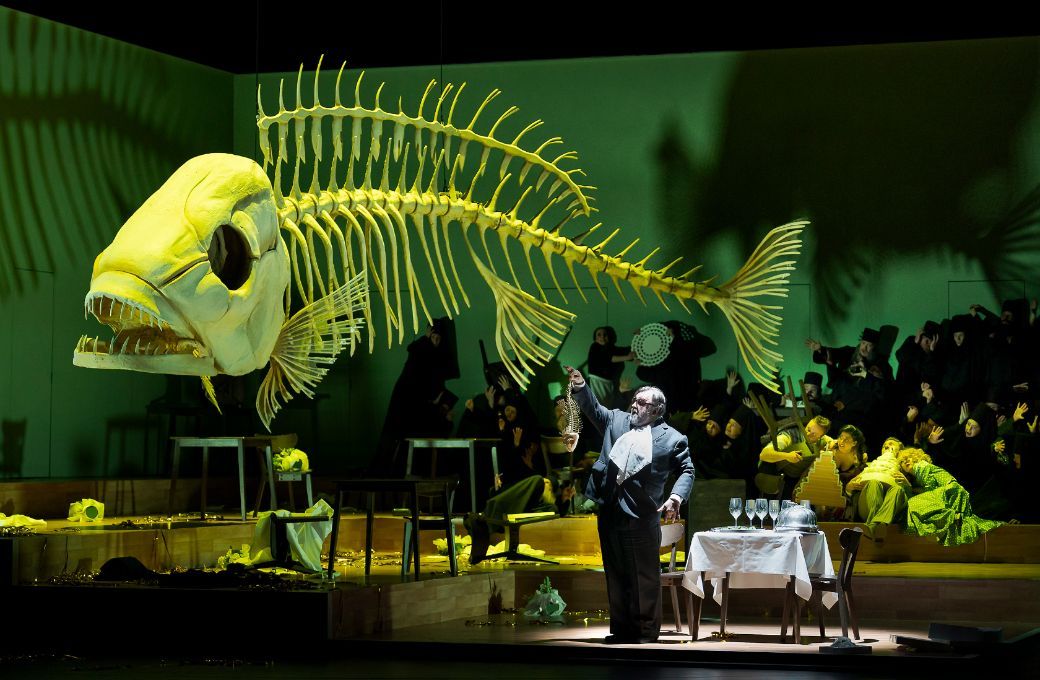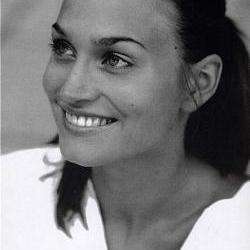While one might anticipate a composition from 1940s Russia to be somber and heavy, Sergei Prokofiev's Betrothal in a Monastery is a spirited departure – its unexpected levity eschews patriotic heroics in favor of a comedic narrative where youthful (primarily womanly) cunning triumphs over the tired machinations of wealthy (male) elders. The libretto, written by Prokofiev and Mira Mendelson, is based on Richard Brinsley Sheridan's 1775 play The Duenna. The opera was intended to premiere in 1941 but was delayed due to World War 2 and finally premiered in Leningrad on 3rd November 1946.
Set in 18th-century Seville, the plot revolves around a series of misunderstandings and love entanglements. Louisa, the daughter of Don Jerome, is brokered by her father to marry the wealthy fish merchant Mendoza, but she loves the poor Don Antonio. Meanwhile, Louisa's brother Don Ferdinand is in love with Clara, who flees to a convent. Louisa's Duenna (governess), helps her escape by switching outfits, leading to a series of comedic misunderstandings à la Cosi fan tutte or La Cenerentola. Eventually, all three couples – Louisa and Antonio, Ferdinand and Clara, and Mendoza with the disguised Duenna – end up married, to the surprise of Don Jerome, who remains haunted by an enormous, skeletal fish in Damiano Michieletto’s opulent production for MusikTheater an der Wien, underscoring, perhaps, the themes of indulgence and its consequences.
Michieletto, in a co-production with Dutch National Opera and Seville’s Teatro de la Maestranza, transports the 18th-century Spanish setting into a modern, abstract space filled with energetic sparkle. Set designer Paolo Fantin crafts a minimalist stage with movable rooms framed by blinding neon light barriers allowing for fluid shifts between the opera’s nine scenes. The through-line throughout was fish: strikingly suspended to dominate the stage, worn as fascinators in the hair of blond showgirl dancers, or as large LED signs across which characters drape themselves.
All this, combined with Prokofiev’s signature cartoon-style musical idiom, which spins on a dime and remains firmly in the worlds of the burlesque and the sarcastic, makes the entire evening a celebration of farce. Nothing is to be taken too seriously, none of the characters seem real, none of the problems genuine. In fact, the only character who seems genuinely distraught by anything, musically or scenically, is Clara, sung by the dulcet-voiced Anna Goryachova, whose scenes seem almost like cut-ins from a completely separate, much more serious, opera.
Speaking of singing, there was not a weak link to be found. Primarily cast with Russian or Slavic voices (Stacey Alleaume as Louisa being the most obvious non-native Russian-speaker in a principal role), there was volume and ring to spare, with standouts including Evgeny Akimov, who embodied Don Jerome with a commanding tenor and style, capturing the hilarious nuances of the overbearing father, particularly in his scenes with Valery Gilmanov, portraying the fish merchant Mendoza. Gilmanov displayed robust vocal presence and comedic flair, rendering his character both formidable and completely endearing. Alleaume, as Louisa, showcased a crystalline if comparatively light soprano, effectively conveying the character's youthful defiance, while Elena Maximova delivered a remarkable performance as the Duenna, balancing vocal depth and prowess with nuanced physical comedy to depict the scheming governess with wit and subtlety. The Arnold Schoenberg Choir and a quorum of excellent dancers brought a wealth of exuberance, whether as drunk monks (irreverently sporting ladies’ dessous and heels under their robes) or murderous fishmongers in one of Don Jerome’s hallucinatory, fish-filled fever dreams. A special shout-out to whoever created all those beards; this was award-worthy men's hair design.
Prokofiev’s score is fairly thickly scored and brassy and, particularly in the first half, the volume level was consistently extreme. The ORF Radio-Symphonieorchester Wien, playing spectacularly, was not in any way restrained by conductor Dmitry Matvienko, and the strength and vocal brilliance of the singing cast was set to eleven, leaving little space for subtlety or nuance. There are a wealth of catchy themes, but little recurrence — and nothing that sticks in the ear until after the intermission when, musically, there is more substance and thematic development. While it honestly could not have been more effectively or energetically executed, I cannot pretend that the work is deeper than a puddle.

Will this evening stay with me in any significant way? No. Are there perhaps more worthwhile themes, composers and voices towards which the MusikTheater an der Wien could dedicate its significant resources? Likely. But for those who want to escape from reality for a few hours, hear some terrifically powerful voices, and chuckle along to well-worn operatic tropes and terrifically cheeky humor, there is certainly no better way to spend an evening.


